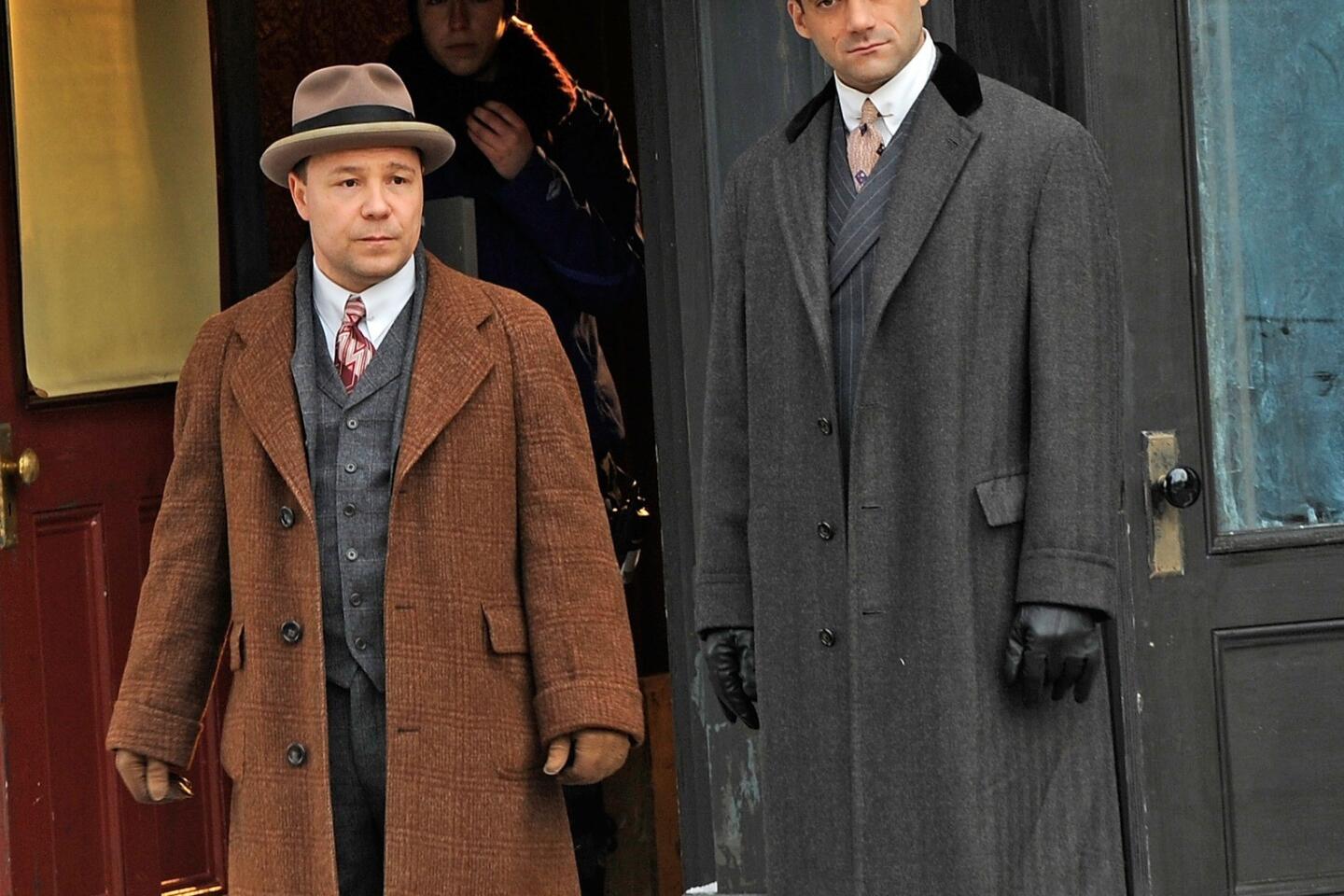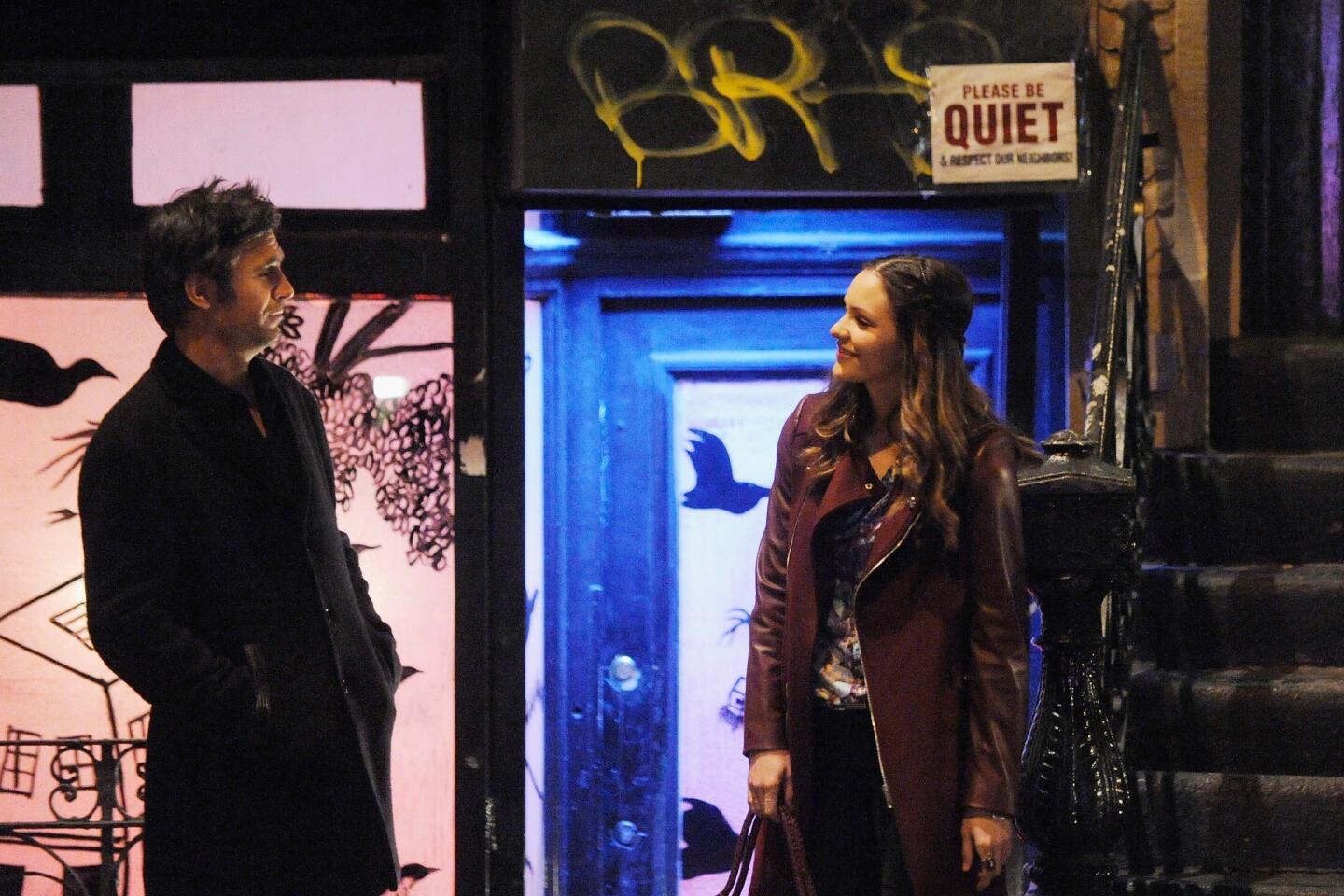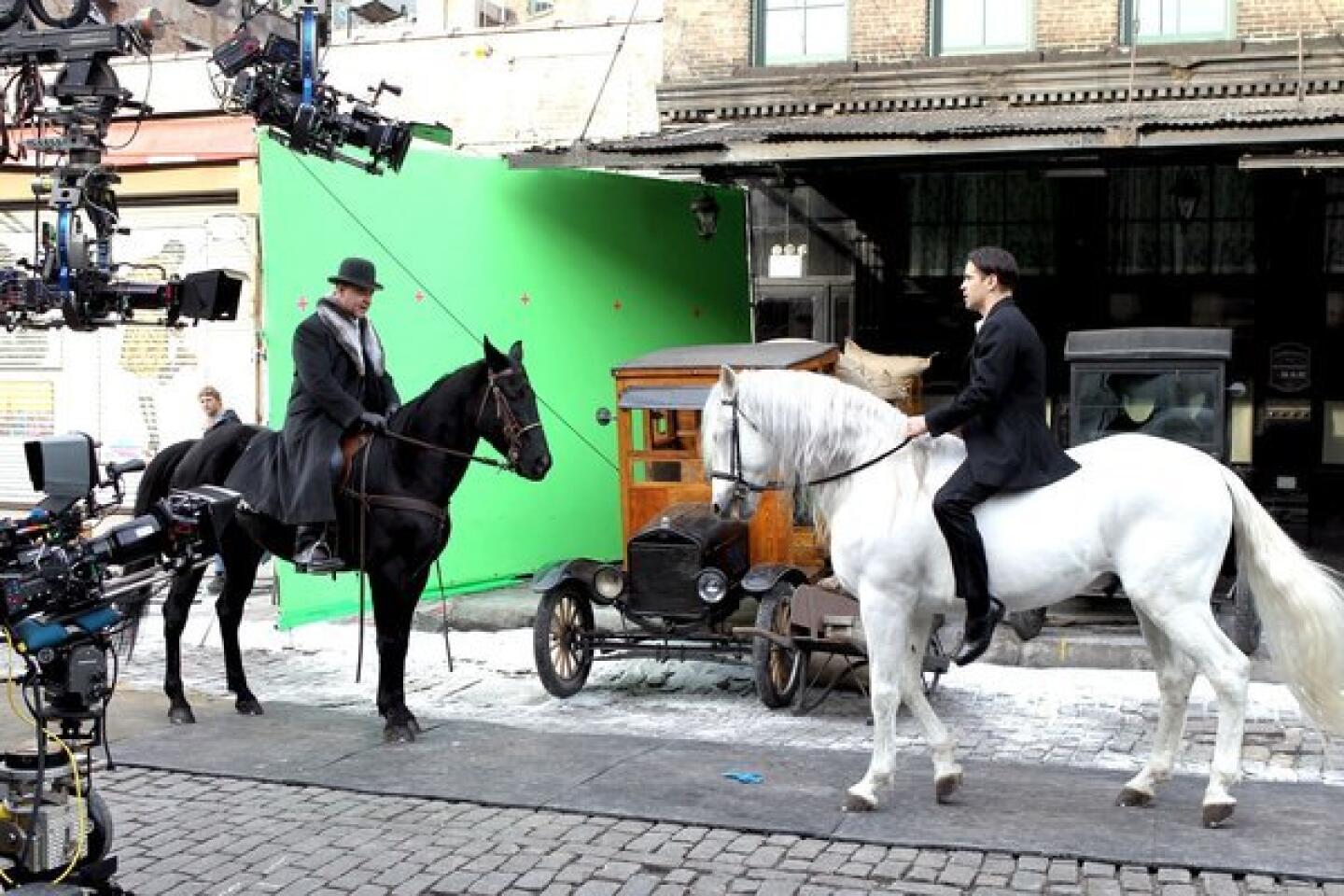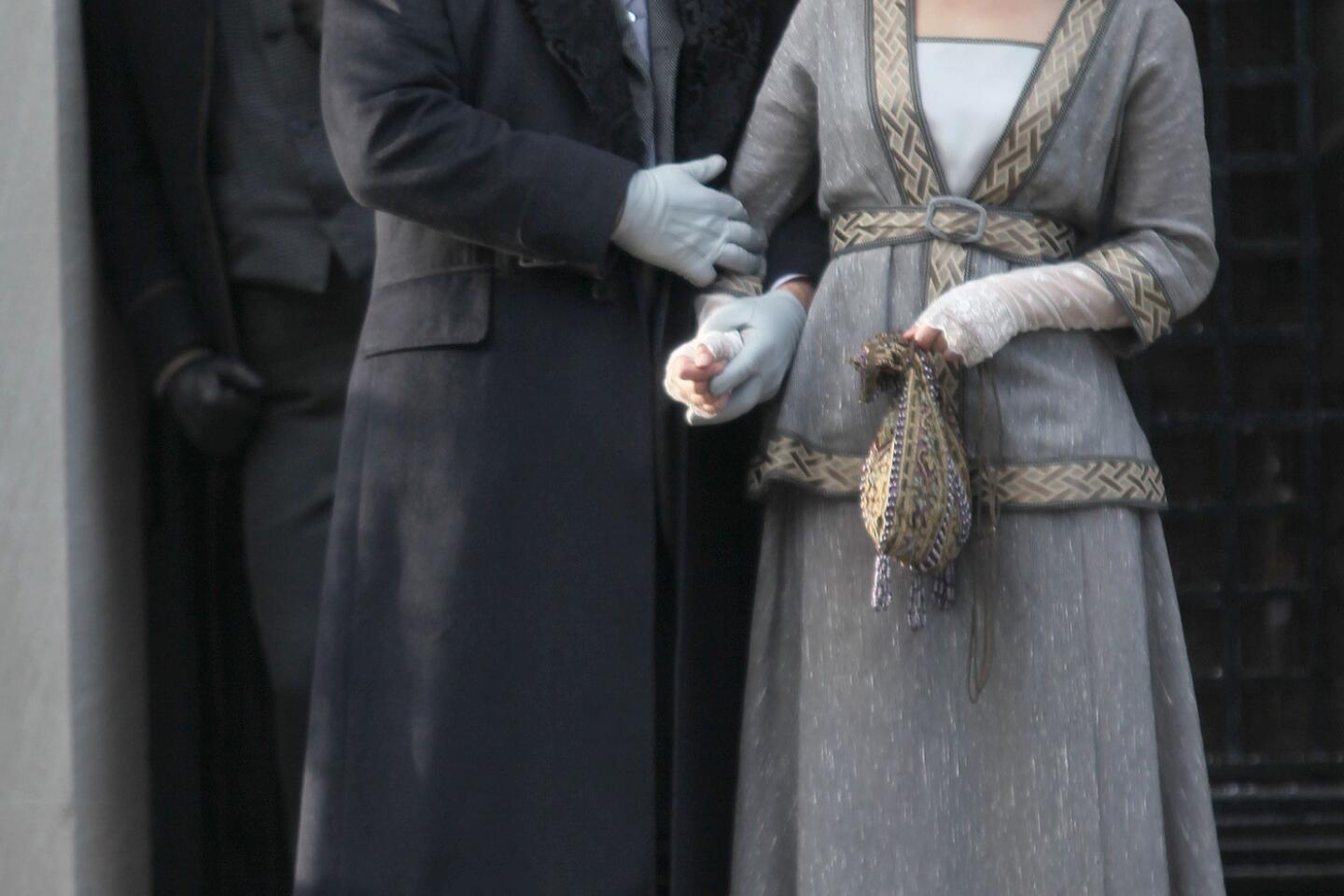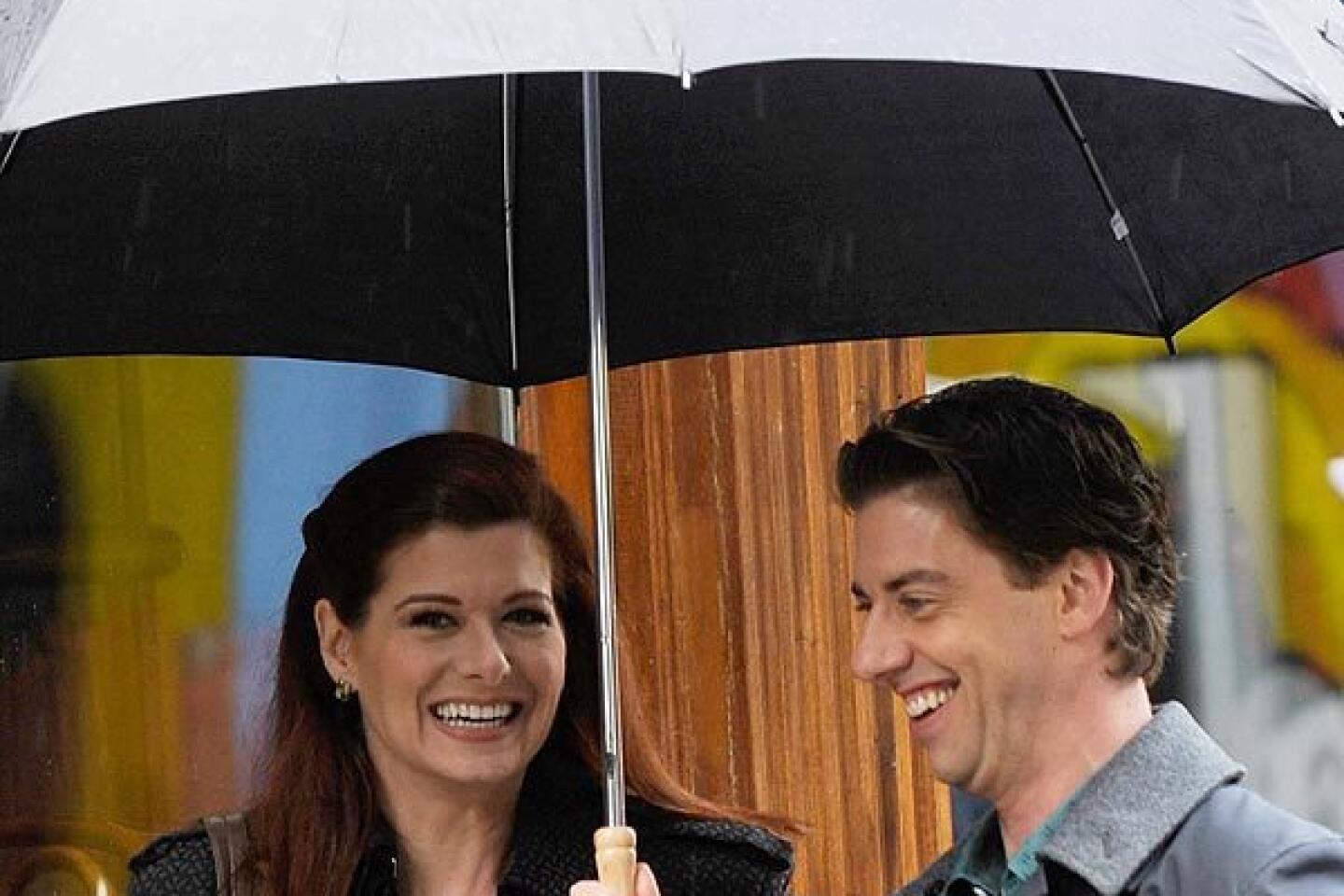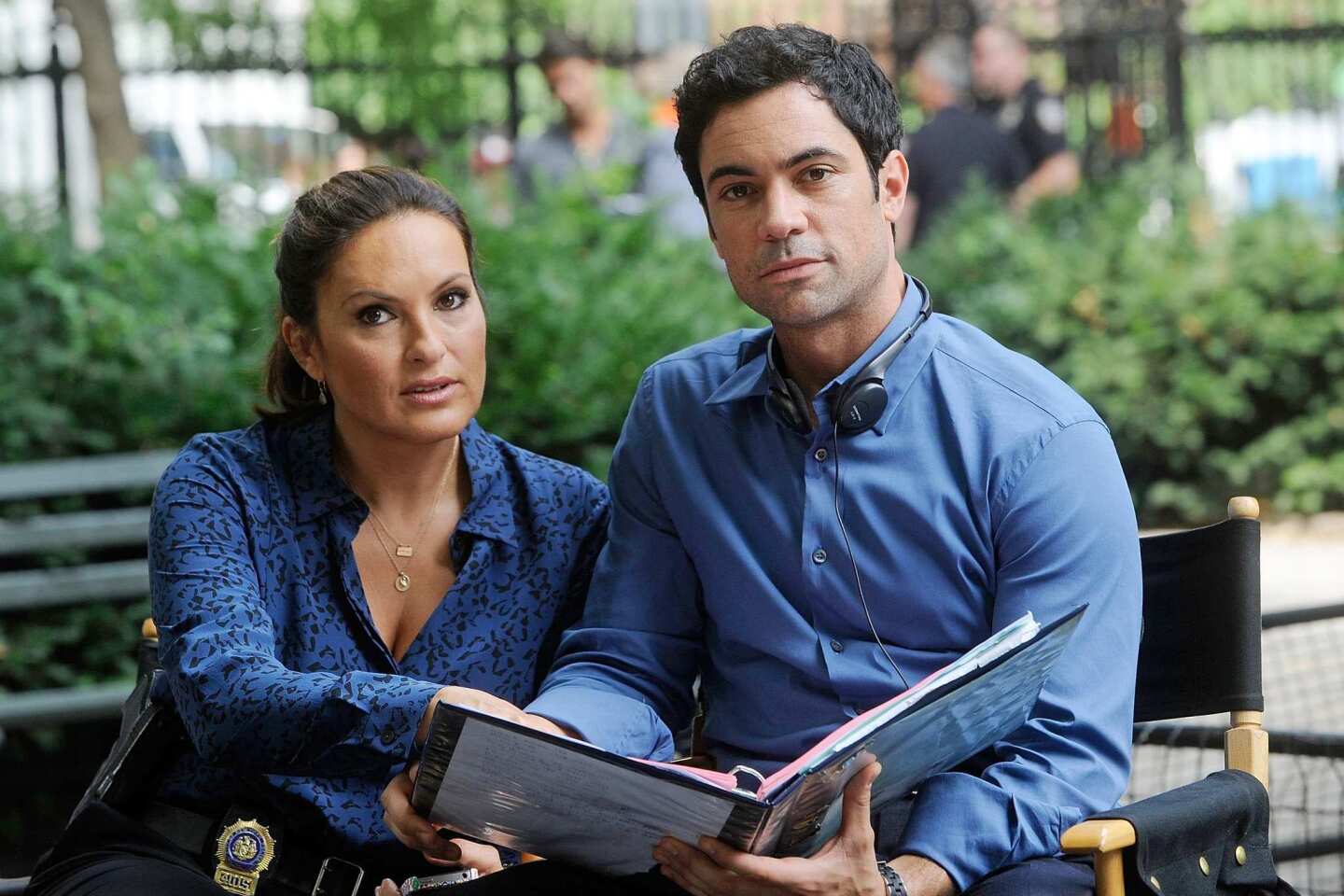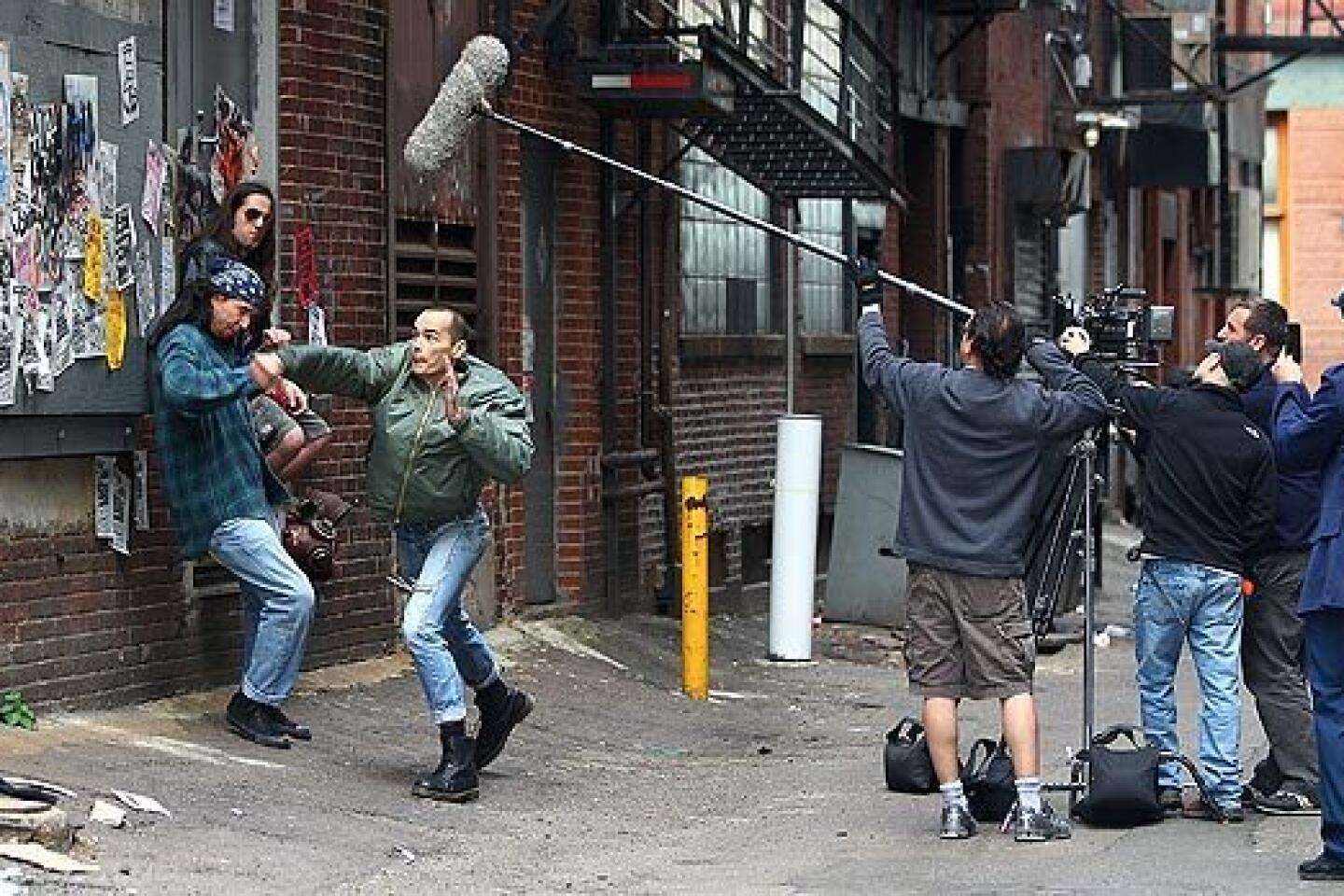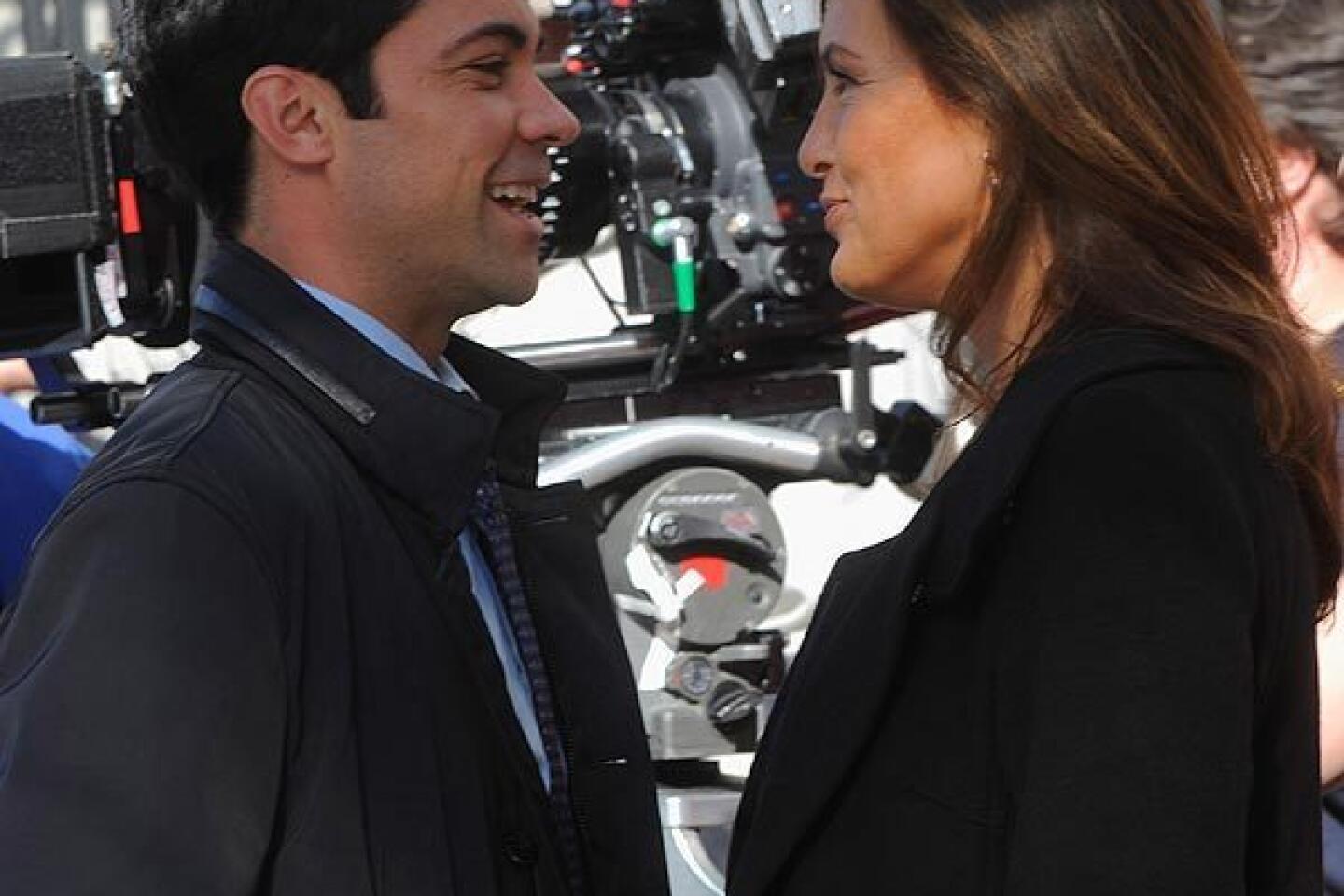Review: ‘Ginger & Rosa’ a showcase for Elle Fanning
As the ampersand between their names indicates, “Ginger & Rosa” are inseparable, pals since birth, best friends for as long as anyone can remember. At least until now.
It’s 1962 in London, and 17-year-old Rosa worries about finding true love, “the kind that lasts forever.” Ginger, however, has other, weightier concerns. “If there is a forever,” is her immediate response, with a big emphasis on the “if.”
An empathetic and aware film, “Ginger & Rosa” is several striking things all at once. It’s an adult look at the teenage years, an examination of how personal emotions inform political action, a noteworthy change of pace for writer-director Sally Potter and, most of all, the showcase for a performance by Elle Fanning as Ginger that is little short of phenomenal.
PHOTOS: SXSW 13 must-see films
The younger sister of Dakota Fanning and an actress since she was 2, Elle Fanning is a known quantity to many moviegoers through performances in films such as “Somewhere,” “Super 8” and “We Bought a Zoo.” But even all that doesn’t quite prepare you for what she’s done here.
As a young person increasingly fearful about the threat of nuclear annihilation, especially as the Cuban missile crisis unfolds, Fanning displays a dazzling naturalness on camera, an ability to move persuasively between any number of emotions, from hesitant to sassy to distraught to anything else you can name.
Fanning’s work is so impressive, it makes what weaknesses “Ginger & Rosa” has seem unimportant. She’s reason enough to see the film all by herself.
For Potter, the innovative director of 1992’s “Orlando,” a film this straight ahead and naturalistic is a real departure. “I tried to eliminate some of my aesthetic habits and obsessions,” she says in a press notes interview, “and make it a film about the complexity of experience.”
“Ginger & Rosa” starts with newsreel footage of the atomic bomb blast and resulting devastation at Hiroshima that overshadows the entire story. Then we see the two girls born in adjoining hospital beds and watch as their mothers’ lives take different turns.
The husband of Anoushka (Jodhi May) deserts her early on, leaving her to raise Rosa (Alice Englert, director Jane Campion’s daughter) on her own. Ginger’s mother, Natalie (“Mad Men’s” Christina Hendricks), remains married, but her husband, Roland (an expert Alessandro Nivola), is a hard dog to keep under the porch.
Both idealist and hedonist, Roland went to prison as a conscientious objector during World War II and is now a writer and pacifist thinker who believes “our only life is the one we have now; that’s why we must seize it and live while we have the chance.” Though he clearly loves his daughter, he is often glib and sarcastic toward Natalie and seems to chafe at the whole notion of marriage.
Meanwhile, the inseparable Ginger and Rosa do classic teenage things together like flirt with boys, argue with their parents and iron their hair to straighten it. United by wonderful complicit looks, they are essentially trying out adult moves for size, figuring out the shape of their lives.
But while Rosa becomes obsessed with the opposite sex, Ginger gets increasingly serious, reading T.S. Eliot and Simone de Beauvoir and worrying that “we could all die tomorrow.” She starts to attend ban the bomb meetings and takes part in mass rallies held by the Campaign for Nuclear Disarmament.
These five central characters are all sharply written and well-acted, but the film’s peripheral characters don’t fare as well. Anoushka’s two gay friends, Mark (Timothy Spall) and Mark Two (Oliver Platt), seem as arbitrary as their names, and Annette Bening does as much as she can with the underwritten role of an American poet named Bella.
Also problematic, albeit inevitable, are some of the more melodramatic plot roads “Ginger & Rosa” heads down, but Fanning’s performance is so potent, she feels things so deeply, you barely notice. When Spall’s Mark responds to Ginger’s earnest adult seriousness with a sad “Can’t you be a girl for a moment or two longer?” we feel that regret quite as strongly as he does.
--
‘Ginger & Rosa’
MPAA rating: PG-13 for mature, disturbing thematic material involving teen choices — sexuality, drinking, smoking — and for language
Running time: 1 hour, 40 minutes
Playing: At Landmark, West Los Angeles
More to Read
Only good movies
Get the Indie Focus newsletter, Mark Olsen's weekly guide to the world of cinema.
You may occasionally receive promotional content from the Los Angeles Times.



